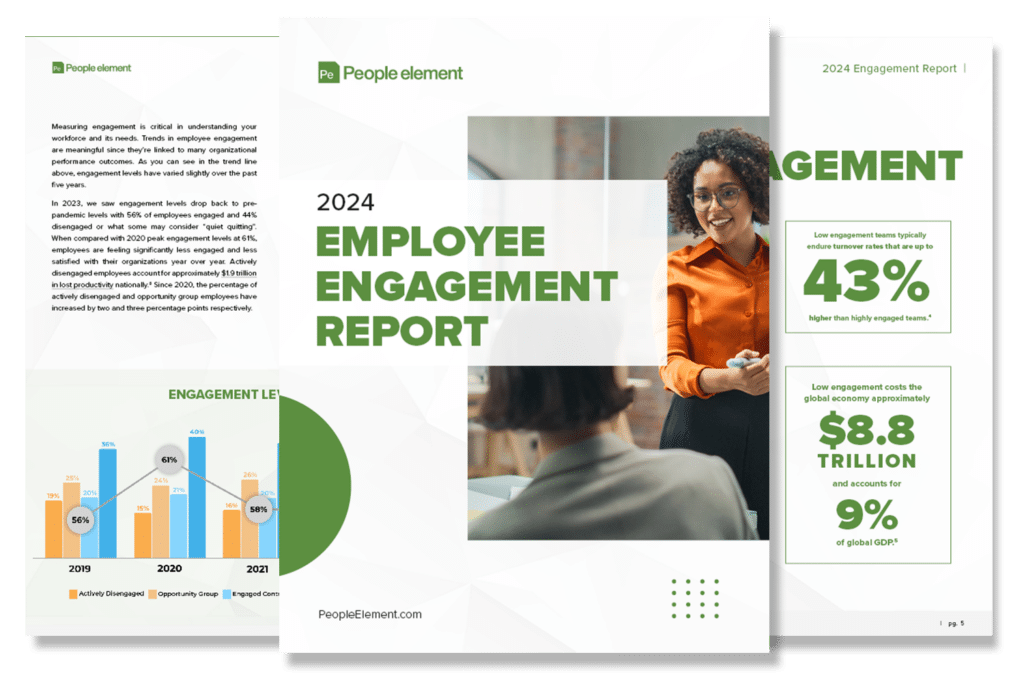Effective employee relations are crucial for a harmonious and productive workplace, and HR professionals play a pivotal role in fostering these relationships and supporting a positive work environment. Employing the right strategies can improve the organization’s reputation, making it an attractive place to work while helping to attract and retain top talent.
Best Practices for Nurturing Employee Relations
To be effective, the foundation of all employee relations must be open and empathetic communication. Actively listening to employee concerns and feedback—while demonstrating understanding and empathy—is fundamental.
Additional best practices include creating a positive environment, recognizing and rewarding contributions, handling issues professionally, conducting surveys and promoting diversity and inclusion. Embracing these approaches with intention can seriously enhance employee relations.
Create a Positive Work Environment
Creating a positive work environment is a cornerstone of employee satisfaction and productivity. Think of it as fostering a culture of respect, collaboration and overall good vibes. Here are a key pillars of a positive work environment:
- Encouraging teamwork and recognizing individual contributions can boost morale, while providing opportunities for professional development and growth demonstrates a commitment to employee well-being.
- Flexible work arrangements and work-life balance initiatives also play a pivotal role.
- Don’t underestimate the powerful effect of leadership that leads by example to prioritize employee well-being.
- Furthermore, clear policies, transparent decision-making processes, and fair treatment of all employees are essential.

Recognize and Reward Employee Contributions
Every employee wants to be seen, so recognizing and rewarding their contributions is a powerful motivator. Acknowledging the efforts and achievements of staff not only boosts morale but also reinforces a sense of value and belonging. This recognition can take various forms, including verbal praise, bonuses, promotions, or non-monetary rewards like additional time off or flexible work arrangements.
Whatever cadence or combination you choose, implementing a well-rounded recognition and reward system encourages continuous improvement, inspires loyalty, and enhances overall job satisfaction.
Handle Any Issues and Complaints
Skillful handling of issues and complaints as they arise is essential to maintaining a healthy workplace environment. It begins with creating a safe and confidential space for employees to voice their concerns. Active listening, empathy, and a non-judgmental approach are key in understanding the issues at hand. Effective investigation processes, conducted with fairness and transparency, are needed to arrive at equitable resolutions, especially with compliance issues.
Communication with all parties involved is a must, and prompt action should be taken to address and resolve issues in accordance with company policies and legal requirements. Moreover, HR professionals must document cases meticulously and learn from them to prevent future conflicts.
Conduct Employee Surveys and Collect Feedback
Want to know what your employees are thinking? Just ask! HR professionals can harness the power of employee surveys and feedback to gain valuable insights into their workforce. These tools provide an avenue for employees to share thoughts and concerns openly.
By conducting regular surveys, HR can gauge employee satisfaction, engagement, and areas for improvement over a period of time. The most important step however is to both communicate the results and follow up with action plans to address issues raised. This proactive approach fosters a culture of continuous improvement and responsiveness to employee needs.

Promote Diversity and Inclusion
Promoting diversity and inclusion is not just a moral imperative but a strategic advantage. By actively recruiting and retaining a diverse workforce and creating an inclusive environment, HR departments can tap into a broader range of perspectives and talents. This not only fosters creativity and innovation but also results in a more equitable workplace, which can boost employee morale and overall performance.
Establishing diversity and inclusion programs, offering diversity training, and enforcing anti-discrimination policies is a good place to start. When organizations embrace diversity and inclusion, they not only create a workplace where everyone feels welcome but also demonstrate a commitment to social responsibility and equality, enhancing their reputation and long-term success.
Adapt to Changing Workplace Dynamics
Finally, just when you think you’ve checked every box, check again. Adapting to changing workplace dynamics is a necessity in today’s business landscape. Staying agile and proactive helps to address shifts in work patterns, technology, and employee expectations. It may involve being open to remote work options, flexible schedules, and new technologies that can enhance productivity.
Being responsive to emerging trends and listening to employee feedback can help organizations stay competitive while keeping their workforce engaged and satisfied amidst evolving dynamics.
Streamline Employee Relation Efforts with People Element
Restoring and maintaining healthy employee relations requires a multi-faceted approach but it doesn’t need to be difficult. People Element’s employee survey platform can be customized to streamline your efforts.
Engage your employees at every step of their journey with your organization and glean measurable results to drive informed decision-making. Ready to build a better workplace? Contact us today for a free demo of our employee surveying platform.





